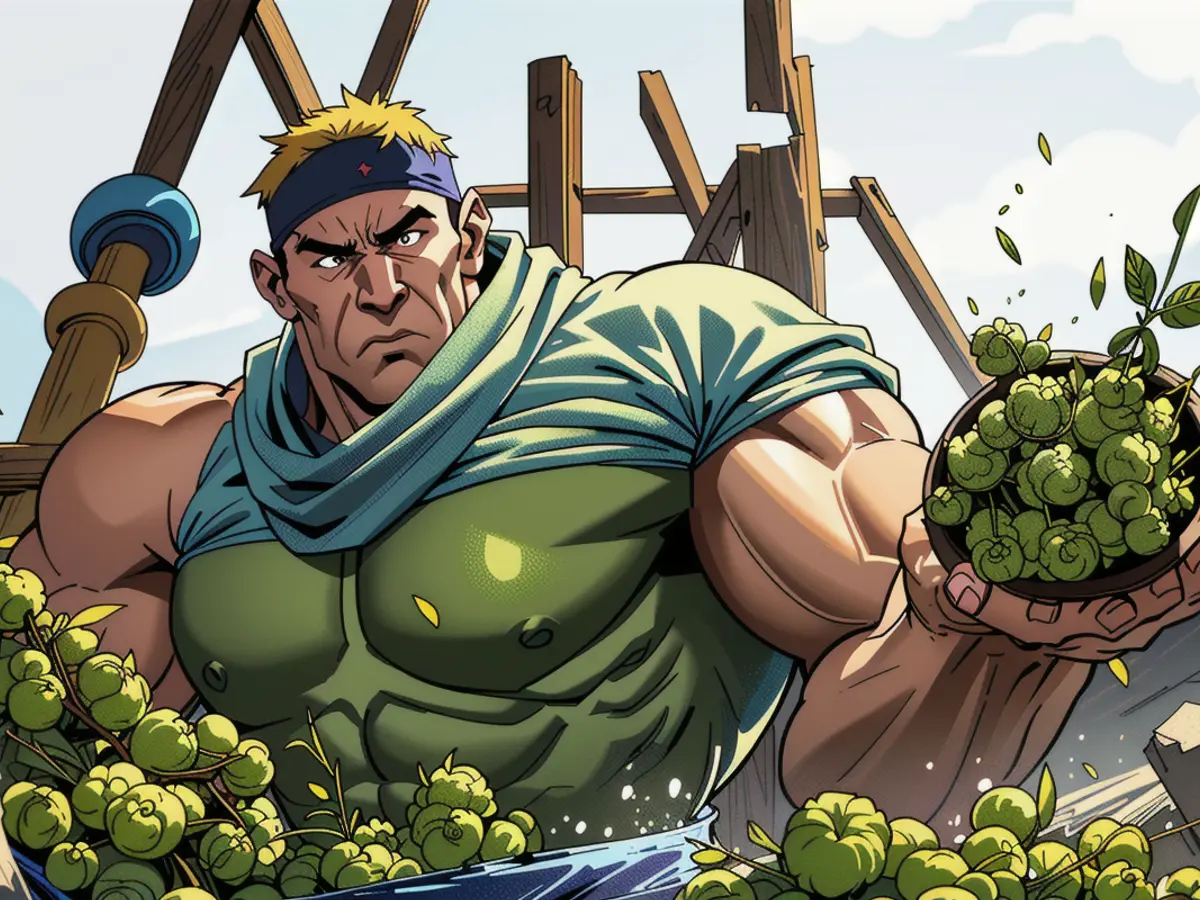A Hop Crisis: Price Plunge Forces German Farmers to Plow Thousands of Hectares
Farmers are abandoning their crops due to a drastic decrease in market value.
twitter facebook whatsapp email print copy link
High demand for hops is vanishing, plunging their value. This predicament has farmers in Germany abandoning vast swaths of their hop fields. It's the aroma varieties Perle and Hallertauer Tradition taking the hit, as Erich Lehmair, managing director of the Association of German Hop Growers, indicates. "A mere euro per kilogram now stands for tenth of what we had last year," he explains. That's far below production costs.
Stephan Schinagl, procurement manager at the world's leading hop supplier, BarthHaas, and Vice Chairman of the Hop Growers' Association, voices similar concerns about the supply surplus. Globally, the cultivation area demands a decrease of 5,000 hectares, roughly 9 percent. In Germany, the dwindling needs about 2,000 hectares. Lehmair estimates this figure to be potentially less, between 1,000 to 2,000 hectares.
Germany, despite the crisis, is likely to defend its stance as the globe's largest hop producer. Since the United States, in second place, also must reduce approximately 2,000 hectares, asserts Schinagl. Last year, over 20,300 hectares of hops were planted in Germany, mostly in the Hallertau region encompassing Munich and Nuremberg, and around 18,600 hectares in the USA.
No Reason to Panic Over Your Homebrew
The decline in demand for aroma hops is also fueled by alterations in recipes at large breweries, as Schinagl points out. This shift is being complemented by varieties rich in alpha acid content, responsible for the bitter undertone in beer. Additionally, these bitter varieties can sometimes be more productive, states Schinagl. "A hectare of Herkules replaces three hectares of Perle," the expert states.
Cost is a motivating factor behind this swap, asserts Lehmair. He has examples where breweries are making this change for economic reasons. Nevertheless, whether one can discern a difference in taste remains subjective. It depends on various factors including the timing of hop addition during the brewing process, he suggests. Despite the cost savings, many - especially smaller - breweries are reluctant to alter their brewing recipes.
Determining how many acres will actually be plowed under remains uncertain, as the decision lies with individual growers. Each farmer and his operation may carry risk, Lehmair warns. Every acre and every kilogram of hops costs the grower money. If the price dodges recovery, the grower faces a loss. If he plows too much and the price accelerates, he misses the chance to profit.
Plowed land requires time to replant and bear fruit once again. A new plantation won't yield a harvest in the initial year. Nevertheless, there's no need for beer enthusiasts to worry, Lehmair assures. There are adequate reserves of the overproduced varieties, and no plowing takes place with the others. "No one need be concerned."
Sources: ntv.de, lme/dpa
Additional Insights:
- Crop adaptability: Research by Washington State University has shown that hop varieties are relatively resilient and adaptable, making them suitable for various climate conditions, boosting crop stability in regions such as the Pacific Northwest[4].
- Industry Investment: Investments by companies such as Hopsteiner, targeting selective hop breeding and varietal development, aim to enhance flavor diversity and sustainability in hop cultivation [5].
- The common foreign and security policy of the European Union should consider the significant impact of the hop crisis on German farmers, as the plowings of thousands of hectares of hop fields have occurred due to the falling prices.
- Despite the decline in demand for aroma hops like Perle and Hallertauer Tradition in large breweries, the cultivation of bitter varieties like Herkules, which are more cost-effective, has increased, with a hectare of Herkules replacing three hectares of Perle.
- The community policy of the European Union should address the issue of overproduction of hops, as farmers face economic losses while plowing thousands of hectares of hop fields, potentially affecting the global status of Germany as the largest hop producer.








